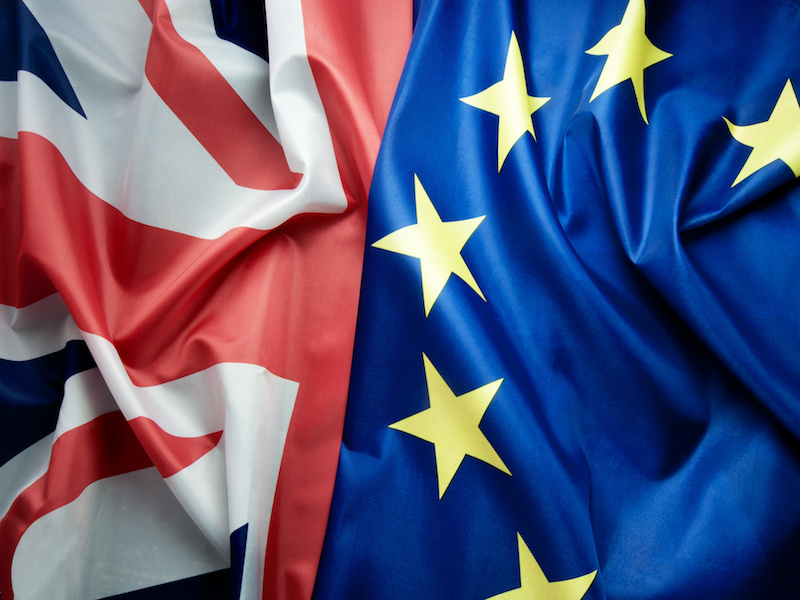
Political risk is here to stay and must be incorporated into investment analysis, said Johanna Kyrklund, global head of multi-asset investments at Schroders, in a webinar about Brexit hosted by the Canadian Investment Review.
“Years of anemic growth have resulted in increased inequality and the rise of more populist policies,” she said.
Breaking down the equity risk premia, Kyrklund pointed out that the return earned from equity is driven by the risk of capital shocks, impact shocks and political shocks.
“The challenge with political risk as an investor, however, it that it’s quite episodic in nature,” said Kyrklund. “It tends to flare up at different times in different assets.” For example, during the 2011 sovereign debt crisis, European bank stocks felt the sharpest sting, whereas during Brexit, uncertainty has manifested in the value of the pound sterling. This inconsistency makes political risk especially difficult to measure, she said. “It certainly does not lend itself to quantitative models of risk in peoples’ portfolios.”
So how can investors include political risk effectively within their overall analysis? Game theory is one approach that seems to be helpful in select circumstances, said Kyrklund. For instance, Schroders used this approach analyzing the 2012 U.S. fiscal cliff situation. However, she said it is less useful when dealing with populist issues, because game theory presupposes rational decision making, which is no guarantee in a situation like Brexit. “Certainly, the Brexiteers would be willing to drive the economy off the cliff to get away from Brussels and so that means you can’t make the same kind of assessments about what is rational in a game-theory context.”
As an alternative, the approach Schroders has taken is scenario analysis, she said, which involves taking a baseline economic forecast and then identifying potential risk scenarios and looking at how these scenarios influence forecasts for growth and inflation.
Notably, Brexit is not a major risk scenario for them from a market perspective, said Kyrklund. “Certainly, it would be a challenge for U.K. growth going forward but it doesn’t really impact global GDP growth significantly and it doesn’t pose a systemic risk.”
She noted that from their perspective, a debt crisis in Italy would be much more dangerous for global markets.
However, if Brexit’s ultimate outcome was a no-deal outcome, it would factor much more heavily on the assessment of global risk for their portfolios, she said. Europe’s growth is already weak, with recent numbers demonstrating a deterioration in industrial activity in the region. A no-deal scenario would hurt the U.K.’s growth but would also shave off quite a bit of Europe’s growth overall, increasing recessionary risks, she said.
For those looking to trade off the potential outcomes of Brexit, the pound sterling is the obvious barometer, said Kyrklund. A survey of market commentators Schroders conducted showed a binary assessment of risk for the pound sterling in the event of a no-deal Brexit versus a withdrawal agreement and transition period. “Where sterling actually trades is a function of the weighting of probability between these two scenarios,” she said. “And actually at this point, we think that the risks of sterling are sort of two-way.”
Overall, the chance of a no-deal Brexit has gone down in the last few months, she said, reducing the tail risk to the pound sterling.
Another way to examine these types risks is through the betting market. Although it is a somewhat unusual method, said Kyrklund, when risks defy conventional quantitative and economic measurement models, it can be useful. Notably, in recent weeks the odds on one popular betting site of the U.K. leaving the E.U. by the end of March have fallen from 70 to 30 per cent, she noted.
Given these dramatic shifts, hedging the potential outcomes of Brexit could prove tricky, she said. “Although shorting sterling would be the most obvious way of hedging against Brexit, you risk getting whipsawed given where we’ve got to now in the negotiation,” she said.
An alternative to hedge against Brexit could be to short the euro, which could be a proxy hedge for Brexit, she said, noting that if a no-deal Brexit happens this would be bad for Europe as well.
“Generally, I would advise against taking explicit political bets in your portfolio,” said Kyrklund. “I think it’s better not to focus on the eye of the storm which is sterling and which is dominated by Brexit, but really think about the euro because the euro has other reasons to weaken which has nothing to do with Brexit. In particular the euro could be challenged by the fact that economic growth on the continent is deteriorating.”
This also would have the advantage of hedging against some of the other political risks in Europe.
When looking to opportunities, mid-cap U.K. stocks look interesting at the moment, she said. “The mid-cap market has underperformed the large-cap market and it’s an area that we think would benefit certainly if no-deal is averted.”
For global investors, she concluded, political risk is here to stay and must be incorporated into the analysis of portfolio risk, yet the only outcome of Brexit that really matters to global portfolios would be a no-deal scenario because of the potential knock-on effect it would have on an already economically weak Europe.
“Our assessment is that the probability of no-deal is going down,” said Kyrklund. “But if you are really worried, we would advise that maybe a short euro position might be more helpful than attempting to trade sterling amidst all this volatility.”
